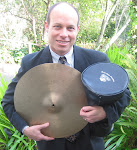Journalist Jon Meacham has written a fascinating memoir in
Franklin [Roosevelt]) and Winston [Churchill]: an Intimate Portrait of an Epic Friendship (2003, Random House, New York). The book should be read by every president that manufactures alliances and manages international conflicts. That would be every one! If our current president had read this book he may not have as quickly characterized Churchill as a reactionary colonialist and removed the Churchill bust from the White House. Churchill was a defender of the British Empire and unwilling to let colonial people have self-determination, but he was also the last European hope against Hitler. His success in lining up American help against the Nazi's, not an easy task in isolationist America, not only saved Britain. Churchill was instrumental in getting the U.S. in the war before it was too late for the free world.
Meacham analyzes the contrasting management styles of Roosevelt and Churchill. Roosevelt was practical, devious, always withholding a part of himself. He controlled his emotions completely, met women he wasn't supposed to see, and could completely compartmentalize his personal and private life from his public duties. He was a fair weather friend--publicly embarrassing and ignoring Churchill when, acting in matters of state as he saw them, he cozied up to Stalin. Roosevelt had utmost faith in his ability to charm anyone, even the Soviet dictator, and had he lived until the end of 1945, he may have been able to convince Stalin to act less aggressively in Poland and the rest of Eastern Europe. Roosevelt may have reacted less vociferously than Truman to Soviet provocations, keeping tensions between America and the Russians below the boiling point. Right before his death, Roosevelt avoided confrontation and suggested a middle course with Stalin (P.341).
In contrast to FDR, Churchill was a straight shooter, courageous, honest, devoted, warmhearted, magnanimous, and an ornate, brilliant orator. He saw black and white, good and evil, when battling Naziism, and history shows his was the correct attitude, when many in his government wanted to make a negotiated peace with Hitler. He was also prescient in predicting and exposing the nefarious intentions of the Soviet empire after the war was over. Roosevelt was starting to come around to Churchill's view of Stalin when Roosevelt suffered the cerebral hemorrhage that ended his life.
Two themes run through the book that also resonate throughout the history of 20th and 21st century presidents. Should a president campaign as though he is healthy even though he is gravely ill, and how much time does a president need in order to recuperate from the weighty pressures of the office?
Roosevelt had congestive heart failure and hypertension, which eventually killed him. At some level he knew he was dying but felt he had to lead the war to a successful conclusion, and no one else could have done it as well. The last point is debatable, but it was obvious to all who met him that FDR looked terrible by mid 1944. He looked haggard, had lost weight, and had energy for only four hours of hard work each day, when the war demanded much more time from the leader of the western world. Roosevelt campaigned like a champion in the 1944 election for a fourth term, slogging through a nasty storm in New York City in an open car. The press put the photographs in all the newspapers. He was fine the voters thought or, wanted to think.
John F. Kennedy was also much sicker than voters knew. Despite his chronic ill health he looked like Adonis (according to journalist and newscaster Walter Cronkite) in his critical televised debate with Nixon and governed with youthful vigor. (See my review of Kennedy
here.) If voters knew the truth about Kennedy's health would they have voted for him over Nixon? Woodrow Wilson was cursed with chronic ill health before his debilitating stroke near the end of his second term. Running against the athletic and larger-than-life Theodore Roosevelt in 1912, Wilson could not afford to let the American people know he was a frail academic.
Do presidents need to be flying to Camp David, playing golf, attending lavish banquets, and just plain enjoying themselves as much as they do? Presidents are always "on" and Meacham's book gives the reader more respect for the formidable pressures of the office, especially in war time. Older, sicker men need time to recharge, whether it's collecting stamps (FDR) or
collecting conquests vacationing at Hyannis Point (JFK). The American people can rightly ask if a president is vacationing in order to work better or, like a Roman emperor, taking the job for what it's worth in order to enjoy frequent, free and lavish vacations.





